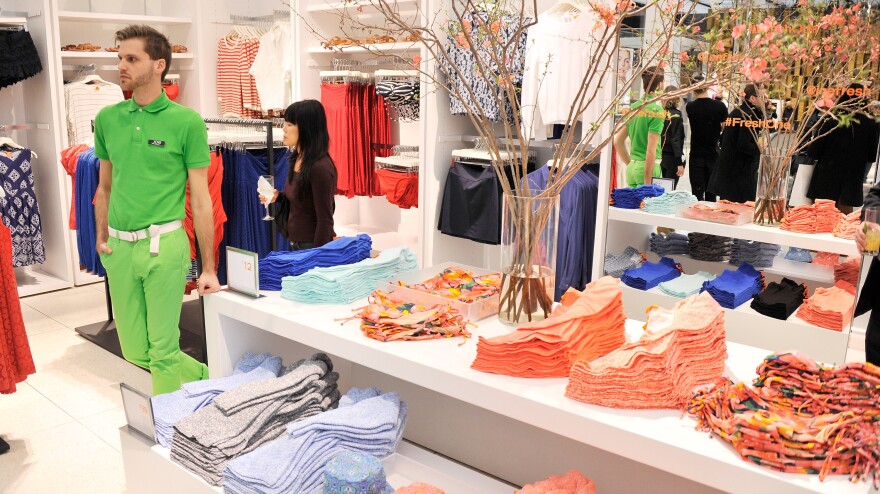Look at photographs from the Bangladesh garment factory collapse, and you can see clothing in the rubble destined for a store called Joe Fresh, one of the many retailers using supercheap fashions made overseas to keep shoppers buying often.
But in the aftermath of the tragedy, would customers pay more if they knew the clothes were made by workers treated fairly and safely?
At the Joe Fresh store on Manhattan's Fifth Avenue, customers are bombarded with pastel polo shirts, button-down shirts and chino pants. On one shelf, you might find clothes made in Peru, Vietnam and China. Toward the back, there are piles and piles of shorts, just $19 each, and each made in Bangladesh.
Outside the store, Reene Schiaffo emerged with a bag full of Joe Fresh merchandise. She says she knew about the Bangladesh factory collapse but gives the company the benefit of the doubt.
"It didn't affect my sale, because I know a lot of times these retailers don't exactly know where the stuff is being made," she says, "but they have to pay attention more because that's not acceptable."
Of course, Joe Fresh has many competitors. Nearby Herald Square has become a kind of mecca for what the industry calls fast fashion — clothes so cheap they are almost disposable. On a block with Zara, H&M, Gap and Uniqlo, I asked shoppers if they'd pay more if they knew the clothes came from safe factories that treated workers well.
Most say yes. In town from Australia, Steve Beretta says he'd pay more, "maybe 20 percent."
That number was repeated by others, and it turns out there's research behind this.

Ian Robinson of the University of Michigan and his team ran an experiment at a suburban Detroit department store. They placed identical socks side by side on display. Some were labeled as coming from factories with good working conditions. Half of the customers noticed the choice and bought them. When the researchers started to raise the prices on the ethical socks, however, there were fewer takers.
"As soon as we introduced a small price difference, just 5 percent different, it dropped down to about 33 percent," Robinson says.
When prices were 20 percent or as much as 50 percent more than the regular socks, about a quarter of shoppers chose to pay more, "at least in part motivated by ethical concerns," he says.
Michael Silverstein of Boston Consulting Group says many retailers do actively monitor their suppliers, but consumers have to demand ethical products. The Bangladesh disaster could help change that.
"It's going to haunt the major manufacturers and major retailers, and they're going to have to get on it," Silverstein says. "I'd say about 75 percent of them are."
For its part, the Canadian parent company of Joe Fresh says it will compensate Bangladeshi victims and is committed to finding a way to improve working conditions. The real test will be if that means the end of $19 shorts.
Copyright 2020 NPR. To see more, visit https://www.npr.org. 9(MDAxNDQ2NDAxMDEyNzU2NzM2ODA3ZGI1ZA001))






